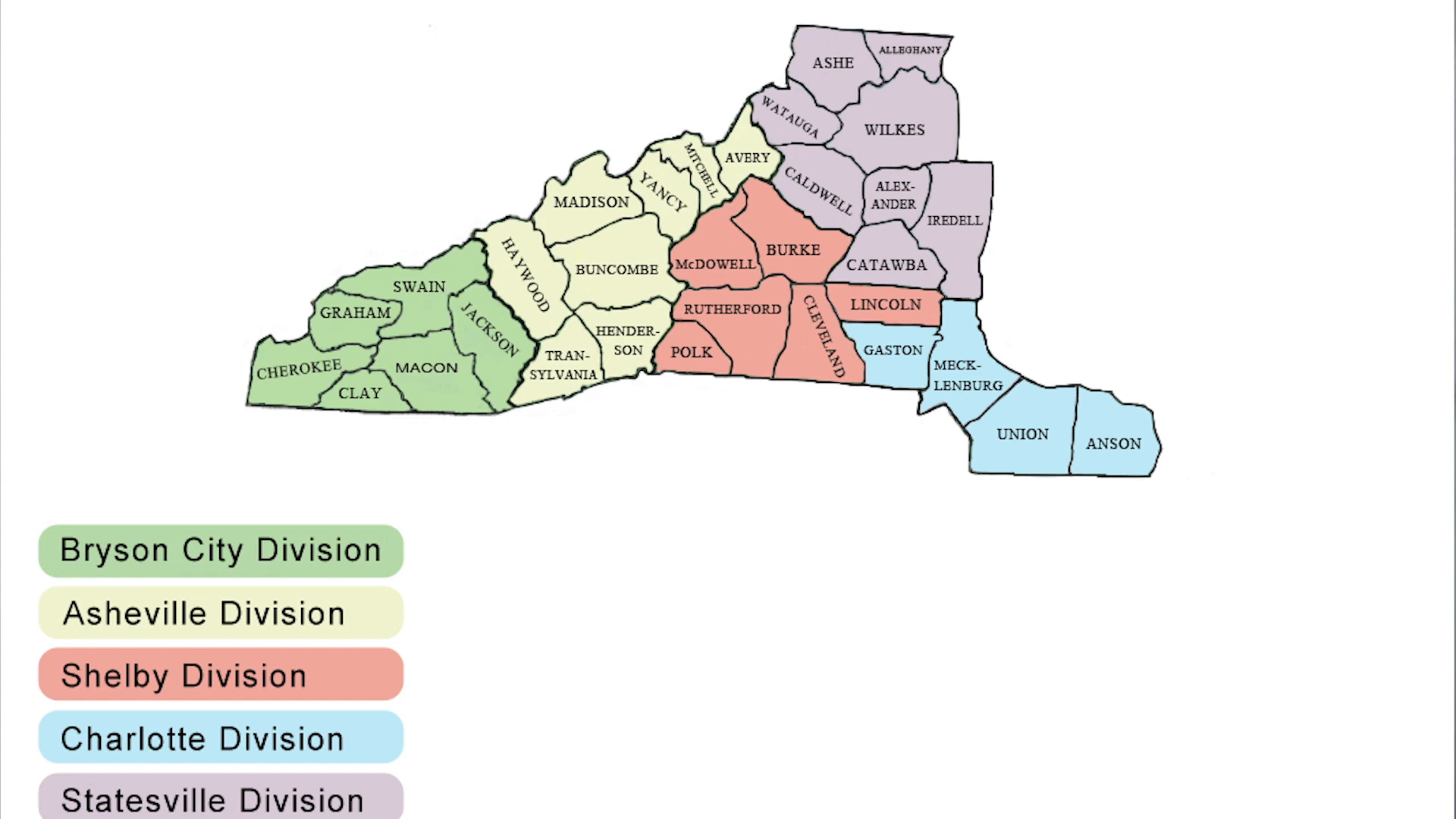Pros and Cons of Living in Western North Carolina
If you're considering moving to Western North Carolina, you'll want to know about the pros and cons of living in this beautiful region. From stunning mountain views to charming small towns, this guide will help you navigate what to expect when relocating to Asheville and its surroundings.
Table of Contents
- Understanding Western North Carolina
- The Charm of Small Towns
- Navigating the Mountains
- Breathtaking Views
- Weather and Water Concerns
- Outdoor Activities Galore
- National Parks and Natural Wonders
- Skiing Opportunities
- Cultural Highlights: Local NPR Station
- Economic Landscape
- Local Publications and Community Connection
- Final Thoughts and Community Engagement
- FAQ about Living in Western North Carolina
Understanding Western North Carolina
Western North Carolina is a diverse and beautiful region, rich in culture and natural beauty. It encompasses 23 counties, including the picturesque Appalachian Mountains and vibrant towns.
The Geography
This area is divided into three main regions: the Far West, the High Country, and the Foothills. Each region offers unique landscapes and activities.
- Far West: Home to the stunning Appalachian Mountains.
- High Country: Known for Boone and Blowing Rock, offering skiing and outdoor adventures.
- Foothills: Includes towns like Hickory and Hendersonville, known for their charm and community feel.
The Community
Asheville stands out as the largest city, but it maintains a small-town vibe. Other towns, like Hickory, add to the charm with their unique characteristics.
The Charm of Small Towns
One of the greatest draws of Western North Carolina is its small towns, each with its own distinctive charm. These towns provide a sense of community and a slower pace of life.
Unique Features
Many small towns boast quaint main streets, local arts and crafts stores, and excellent dining options. They are perfect for exploring local culture.
- Boone: Known for its university and outdoor activities.
- Hendersonville: A retirement haven with beautiful scenery.
- Maggie Valley: Rich in Native American history and culture.

Navigating the Mountains
Living in Western North Carolina means embracing the mountains. While the scenery is breathtaking, the terrain can present challenges.
Winding Roads
Traveling through the Appalachian Mountains often involves navigating steep and winding roads. These roads can be tricky, especially during winter months.
- Four-Wheel Drive: A vehicle with four-wheel drive may be necessary for better mobility.
- Driving Experience: Familiarity with icy conditions is crucial for safe travel.
Power Outages
Occasionally, power outages can occur due to heavy winds or storms. It's wise to be prepared with a backup generator, especially during unpredictable weather.
Breathtaking Views
The views in Western North Carolina are nothing short of spectacular. Each journey unveils stunning landscapes that captivate residents and visitors alike.
Majestic Mountains
From the vibrant blues and purples of the mountains to the expansive sky, the scenery is awe-inspiring. This beauty never gets old, no matter how many times you see it.
- Blue Ridge Parkway: A scenic route that showcases numerous overlooks and stunning vistas.
- Mountain Peaks: With 82 peaks between five and six thousand feet, the variety is remarkable.
Everyday Wonders
Each day brings a new opportunity to appreciate the landscape. Whether you're commuting or exploring, the views are a constant reminder of the region's beauty.
Weather and Water Concerns
Weather in Western North Carolina can be both a blessing and a challenge. This region is known for its lush greenery and beautiful landscapes due to the ample rainfall, but it also brings potential hazards.
Rainy Days
Western North Carolina is often considered a rainforest, which means it can rain a lot. While it doesn't rain every day, when it does, it can lead to sticky, muddy conditions, especially for campers.
- Flooding Risks: Flooding is the primary weather concern here. It's important to consider the location of your home in relation to flood plains.
- Weather Patterns: The area is relatively safe from tornadoes and hurricanes, thanks to its mountainous terrain.
Safety First
With rivers and lakes, safety is a priority. While water activities are abundant, they come with their own set of dangers.
- Be Cautious: Always supervise children near water and be aware of the risks associated with flooding.
- Emergency Preparedness: It's wise to have a plan for severe weather, as conditions can change rapidly.
Outdoor Activities Galore
If you love the outdoors, Western North Carolina is a paradise. The area is rich in natural beauty and offers countless activities for everyone.
Adventure Awaits
From hiking to water sports, there are endless opportunities to explore the great outdoors. Here are just a few popular activities:
- Boating and Kayaking: Enjoy the many lakes and rivers for a day of fun on the water.
- Hiking and Biking: Numerous trails cater to all skill levels, showcasing the region's stunning landscapes.
- Skiing: In winter, nearby resorts like Wolf Laurel offer skiing options for snow enthusiasts.
National Parks and Natural Wonders
Western North Carolina is home to breathtaking national parks and natural wonders that attract nature lovers year-round. The Pisgah National Forest and the Great Smoky Mountains National Park are two prime examples of this region's stunning beauty.
Pisgah National Forest
This vast forest spans over 500,000 acres and is filled with hardwood trees, cascading waterfalls, and diverse wildlife. It's a paradise for outdoor enthusiasts, offering ample opportunities for hiking, camping, and exploring.
- Trails: With 700 miles of trails, there’s something for everyone.
- Water Activities: Enjoy white-water rafting on the numerous rivers.
- Scenic Drives: Drive through the forest to experience its beauty firsthand.
Great Smoky Mountains National Park
This park is renowned for its rich biodiversity and stunning vistas. It’s the most visited national park in the United States, drawing visitors to its ancient mountains and vibrant ecosystems.
- Wildlife Viewing: Spot deer, black bears, and various bird species.
- Hiking Trails: Explore over 800 miles of trails, including the famous Appalachian Trail.
Skiing Opportunities
While Western North Carolina may not be known for world-class skiing, it still offers enjoyable slopes for enthusiasts. The area boasts several ski resorts that cater to both beginners and those looking for a fun winter getaway.
Local Ski Resorts
Some popular ski areas include Wolf Ridge, Beach Mountain, and Chattahoochee. Each resort has its unique offerings, making them great choices for a day on the slopes.
- Beach Mountain: The highest ski area in the eastern United States.
- Wolf Ridge: Offers a variety of runs for different skill levels.
Whether you are a casual skier or a beginner, you can find a place to enjoy the winter snow in Western North Carolina.
Cultural Highlights: Local NPR Station
One of the standout features of living in Western North Carolina is the local NPR station, WNCW. Broadcasting at 88.7 in Asheville, this station offers a unique blend of music and programming that enriches the community's cultural landscape.
Musical Diversity
WNCW is known for its carefully curated music selection. The station features a wide range of genres, including folk, blues, jazz, Celtic, rock, bluegrass, and indie music.
- Local DJs: The DJs are passionate and knowledgeable, making each broadcast a delightful experience.
- Live Performances: Artists often come into the studio for interviews and live sessions, providing listeners with a chance to discover new music.
Community Connection
The station plays a significant role in connecting residents with their community. Many locals have found their favorite bands through WNCW, making it a hub for music lovers.
Streaming options also allow anyone to enjoy the station's offerings from anywhere in the world, further extending its reach and impact.
Economic Landscape
The economy of Western North Carolina presents both challenges and opportunities. While some areas, like Asheville, thrive due to tourism, others struggle with more limited industry and commerce.
Tourism's Impact
Tourism plays a crucial role in the local economy. Cities like Asheville and Hendersonville attract visitors year-round, contributing to the area's vibrancy.
- Retirement Destination: Hendersonville is particularly popular among retirees, boosting the local economy.
- Seasonal Attractions: The natural beauty and outdoor activities draw tourists, creating jobs in hospitality and recreation.
Shifting Industries
Historically, Western North Carolina has faced economic challenges, particularly in manufacturing. Areas that once thrived, like Hickory in furniture production, have seen significant changes.
As technology evolves, the region is attracting a new demographic, including remote workers and tech professionals from places like Silicon Valley. This shift is redefining the local economy and creating a fresh dynamic in the community.
Local Publications and Community Connection
Living in Western North Carolina offers a unique way to connect with the community through local publications. One standout is the Mountain Express, a free magazine that covers local events, interviews, and cultural happenings.
Mountain Express Highlights
This magazine serves as a vital resource for newcomers and residents alike. It provides insights into the vibrant culture and community life in Western North Carolina, making it easier to navigate local happenings.
- Event Listings: Stay updated on local events and activities.
- Interviews: Discover stories from local residents and businesses.
Final Thoughts and Community Engagement
Engaging with the community is essential when considering a move to Western North Carolina. Whether you're interested in Asheville or another town, local resources can guide your journey.
Get Involved
Don’t hesitate to reach out for advice or information. The community welcomes questions and discussions, ensuring you find the right fit for your lifestyle.
- Connect: Reach out via text, email, or phone for personalized assistance.
- Share Your Thoughts: Join the conversation by commenting on local issues or sharing experiences.
FAQ about Living in Western North Carolina
Curious about life in Western North Carolina? Here are some common questions and answers.
What is the cost of living like?
The cost of living in Western North Carolina can vary. Generally, housing is more affordable compared to larger cities.
How's the weather year-round?
Western North Carolina experiences all four seasons. Summers are warm, while winters can bring snow in the mountains.
Are there good schools?
Yes, the region has a mix of public and private schools, with several highly-rated options available.
What outdoor activities are popular?
Residents enjoy hiking, fishing, and skiing. The area is rich in natural beauty and outdoor adventures.
Dreaming of a home in the stunning landscapes of Western North Carolina?
Whether you're searching for mountain views, a cozy retreat, or a place to start fresh, WNC has it all. Let’s find your perfect spot!

Phone: 828-523-9211
Email: beth@livinginasheville.com
Website: www.livinginasheville.com
Read Also: Moving to Asheville, NC? Here's Your Complete Preparation Plan , The Pros and Cons of Living in Asheville , How to Survive in Asheville NC








